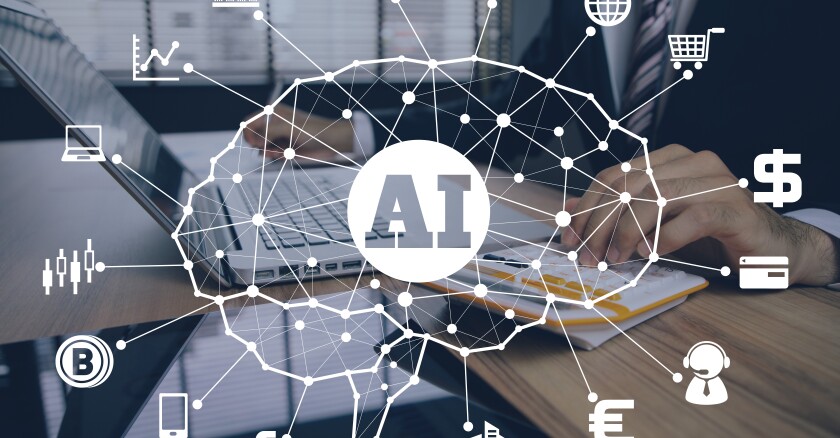But anyone who is serious about expanding computer science education—a list that includes Fortune 500 company CEOs and policymakers on both sides of the aisle—should be thinking carefully about emphasizing AI, in which machines are trained to perform tasks that simulate some of what the human brain can do, and data science, in which students learn to record, store, and analyze data.
That means making sure kids have access to well-designed resources to learn those subjects, bolstering professional development for those who teach them, exposing career counselors to information about how to help students pursue jobs in those fields, and much more.
That imperative is at the heart of a list of recommendations by CSforALL, an education advocacy group presented last month at the International Society for Technology in Education's annual conference.
Leigh Ann DeLyser, CSforALL's co-founder and executive director, spoke with Education Week about some big picture ideas around the push for a greater focus on AI and data science within computer science education. Here are some key takeaways from that conversation.
Teaching computer science—including AI and data science—can help the next generation grapple with big societal problems.
These are the tools that will give the students the best chance of cracking challenges in areas like health care and climate change.
"Our world is complex and messy and full of big problems," DeLyser said. AI and data science are fast- growing areas when it comes to employment, but "they're also the fastest-growing tools that are being used by business people, nonprofits, and governments every single day. No matter what you do in life, if you want to tackle the big problems we have in the world, you're going to need to understand these things and how they can be used, even if you're not the programmer who is writing the code that makes them go."
Students from all different backgrounds must get grounding in computer science.
It's especially important to increase socioeconomic, racial, and gender diversity in the field.
"Research shows that teams that have different backgrounds are better problem solvers, because they think about problems from different ways," DeLyser said. "When everybody comes with the same perspective, you tend to miss out on some of the ideas or the big challenges that pop up along the way. ... We [want to] give equal access, no matter what ZIP code [students] grow up in, to those high-paying careers and opportunities later in their life."
There are already good models of how to teach AI and data-science.
It's possible to see school districts already experimenting with how to do this well, if you know where to look, DeLyser said. "Often, we frame [computer science access] as a deficit narrative. There's nothing happening in education, or education is failing."
But that's not the case, she added. For instance, the large Gwinnett County school district outside Atlanta, is getting ready to open a high school that will focus on artificial intelligence. And in Bentonville, Ark., where Walmart is headquartered, local high school students interning with the company get a first-hand look at how the retail giant uses AI to configure store layouts, with an eye towards maximizing profit.
It's never too early to start teaching artificial intelligence.
Believe it or not, kids as young as kindergarten or even preschool can become familiar with the basics of AI, DeLyser said.
"AI is pattern recognition. One of the most important pre skills for algebra and math development for kids in kindergarten, and even preschool, is pattern recognition. 'This is a circle, this is a square,'" DeLyser said. Teaching AI is "having them take that learning that they're doing for the pattern recognition just one step further. It's like, OK, 'I'm going to teach you, you're going to teach a friend. Now I'm going to teach a computer.' It's not that far off from the work that they're already doing."
©2022 Education Week (Bethesda, Md.). Distributed by Tribune Content Agency, LLC.









